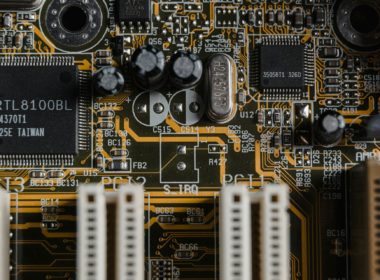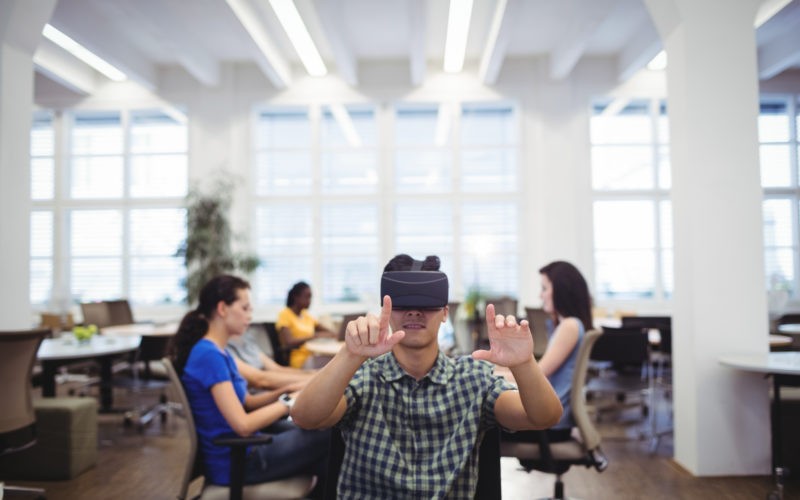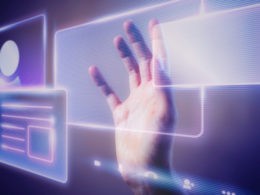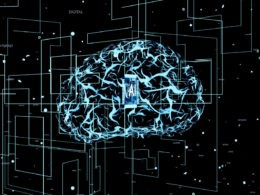Passing licensing exams is super important for medical students before they can start working as doctors. These comprehensive tests ensure that future doctors possess the necessary knowledge, skills, and competencies to treat patients safely.
In recent years, significant advances in technology have completely transformed these licensing exams. Innovations such as virtual reality simulations and artificial intelligence systems have rendered the exams far more efficient, personalized, and precise.
Using Next-Gen Simulation Tech in Exams
Simulation training has become a huge part of health professional education. Highly realistic mannequins and virtual reality enable students to practice skills in true-to-life simulated environments. This simulation technology is now also revolutionizing licensing exams.
Virtual Reality and Augmented Reality in Hands-on Exams
The NCLEX, a rigorous nursing exam, encompasses a broad range of material. The exam’s difficulty escalates with each correct answer, making a thorough understanding of the content essential. Virtual reality (VR) technology offers a new way to study it. By using VR, nursing students can practice with simulations that mimic the complex scenarios found in NCLEX questions and answers, helping them prepare better for the exam. This innovative approach could greatly enhance their chances of success.
Virtual reality replicates the complex real-life situations that doctors encounter. This approach allows students to attempt various cases and receive safe evaluations. Some exams now use virtual reality to test clinical skills like taking patient histories or doing physical exams. Virtual reality makes these tests feel extremely real.
Augmented reality overlays digital information onto actual environments, enhancing the learning experience. This technique demonstrates students’ proficiency in utilizing computer data for diagnosis and treatment planning. Augmented reality is new in exams but has huge potential.
High-Tech Mannequins for Testing Skills
Highly sophisticated mannequins, known as ‘Harvey’, emulate true-to-life anatomy and physiological responses. They help evaluate clinical skills in licensing exams. Mannequins equipped with sensors and augmented reality provide exceptionally detailed assessments for procedures such as chest tube insertion.
Virtual Reality in Surgical Licensing Tests
Numerous medical boards are now employing virtual reality to evaluate surgical skills. Exams like OSATS use simulations to evaluate suturing, knot tying, laparoscopy and more. This enhancement elevates the quality of these critical exams.
Switching to Computer-Based Testing
For decades, licensing exams used paper and pencil. Computer-based testing has become more efficient, secure, and adaptable.
Moving from Paper to Computers
Major licensing groups like USMLE now offer computer-based exams. This cuts costs for supplies, transport, logistics, etc. Computer testing also allows flexible scheduling so students can take exams year-round.
Computer-based testing enables licensing exams to utilize advanced features such as automated scoring and tailored questions. It has opened many new possibilities.
Increased Security
Giving exams on computers has increased security and prevented cheating. It allows randomized questions, strict proctoring, and plagiarism checks.
Biometrics, cameras, tight question exposure controls and many test center regulations have minimized cheating. One group reported catching 50% more security issues after switching to computer-based exams.
Tailored Testing for Better Evaluation
With computer adaptive testing, exam questions change based on a student’s answers. If they get one right, the next gets harder. This shows their skills more accurately.
Advanced computing algorithms power this tailored testing. It lets licensing groups better measure readiness while shortening the exam length. This personalized testing will likely become more common.
How AI is Changing Exams
Artificial intelligence is revolutionizing licensing exams – from making questions to scoring answers.
AI for Standardized Patient Assessments
Human raters can introduce bias when evaluating clinical skills. AI helps standardize evaluations by catching subtle verbal and exam details humans may miss.
One study found that an AI scoring system concurred with human evaluators 95% of the time. AI can reduce bias and make ratings more fair.
Automated Scoring
AI has the capability to instantly evaluate multiple-choice and open-ended questions that include case data, imagery, or laboratory results. This removes human errors and delays with hand scoring.
One study found an AI scoring program was 97% accurate compared to experts. Automated AI scoring majorly speeds up results.
AI Predictions in Test Prep
AI exam prep tools can analyze students’ practice tests to accurately predict their chance of passing the real exam. Schools can then develop personalized study plans targeting each student’s areas of weakness. Such focused prep has been shown to boost pass rates dramatically.
Customized Test Prep with Data Analytics
Preparing for tough licensing exams takes massive effort. Data analytics leverages student performance data to enhance and personalize preparation strategies.
Personalized Learning Plans
Analytics spots exactly where each student needs help. Platforms then provide customized quizzes, learning materials, and feedback tailored to every student’s needs. Such a focused approach has significantly increased pass rates.
Finding Knowledge Gaps
Powerful algorithms look at data from thousands of practice questions tried by many students. This shows topics where the group needs more focused learning. Schools can then improve teaching in the toughest areas.
Better Outcomes
In one example, a school’s licensing exam pass rate was 76% in 2021. After starting an AI personalized prep program, their 2022 pass rate jumped to 92%. Such success shows the huge impact of modern, customized test prep tools.
Remote Proctoring for Better Access
Before, licensing exams required in-person testing. Remote proctoring using webcams has now expanded access and security.
Remote Proctoring Tech
New advances allow students to take exams remotely from approved locations like schools. Strict identity checks and AI monitoring prevent cheating. This expands access for candidates everywhere.
Remote OSCE Exams
A few schools have done remote Objective Structured Clinical Exams (OSCEs) when in-person wasn’t possible. Studies show remote OSCEs can work in unique situations with very careful planning.
Addressing Challenges
Remote proctoring still faces challenges like internet connection issues that may unfairly impact some students. Licensing groups keep working to improve tech and troubleshoot problems while increasing access.
Constant Exam Updates Using Smart Tech
Medical knowledge changes super fast. Licensing exams need updating through agile tech systems that can seamlessly add the latest information.
Real-Time Test Content Updates
Question banks are moving to cloud platforms. This lets experts continuously add new questions on emerging treatments, technologies, guidelines etc. So exams reflect the newest standards in medicine.
Improved Relevance Through Feedback
Collecting input from recent test takers on question relevance also improves content. This feedback allows outdated items to be reviewed and refreshed quickly. Such ongoing feedback loops increase overall quality.
Collaboration on Speedy Updates
Licensing groups partner with tech companies to create systems to update exams rapidly. One partnership enabled entire question banks to be updated within 24-48 hours as new medical evidence emerges.
Ensuring Fair Access Through Tech
Licensing exams are critical milestones. Efforts aim to break down barriers and expand global access.
Bridging the Digital Divide
Programs provide needed hardware and internet to disadvantaged students to ensure tech-based tests are fair for all. Global partnerships also aim to standardize licensing processes between countries.
Global Licensing Exams
One major initiative developed a single, unified exam for new medical graduates across Europe, Asia, and Africa. This improves access and mobility for doctors worldwide, especially in underserved regions.
Policies for Tech Fairness
Medical licensing groups actively create policies to address tech-related unfairness issues. These rules seek to ensure fairness as tech-based tests spread.
The Future of Licensing Exams
Exciting new technologies will likely shape these high-stakes exams in the future.
Multi-Specialty Team Simulations
Future exams could have scenarios needing teamwork across specialties, to better test readiness for real collaborative practice.
Blockchain for Records
Blockchain tech could enable super secure, encrypted sharing of test scores, licenses etc. Blockchain-based systems could also help minimize fraud.
Lifelong Assessments
Experts foresee a shift from one-time exams to continuous assessments. Virtual simulations may let tech frequently evaluate doctor skills consistently throughout their careers.
Conclusion
New technologies like virtual reality, AI, data analytics, simulation, and careful digital integration offer promising solutions to many challenges in medical assessment. Nevertheless, it is imperative that these potent tools are utilized fairly and ethically to effectuate positive change. The future appears exceedingly promising for the modernization of high-stakes medical licensing exams through the judicious use of technology.
FAQs
1. How does VR improve realism in exam scenarios?
Virtual reality creates extremely realistic environments with sights, sounds and 3D effects just like real settings. This deep immersion gets authentic responses from students, enabling better evaluation of readiness.
2. Can computer exams reliably test clinical and hands-on skills?
Advancing VR and simulator tech are enabling computer exams to effectively test clinical skills too. Tablets/styluses also allow drawing/writing.
3. Can tech help eliminate bias in licensing exams?
Yes, AI and data analytics have potential to reduce subjective human bias in exam design, content and scoring. However, biases need active monitoring and addressing in tech as well. Overall, responsible AI use and oversight can greatly improve fairness.












